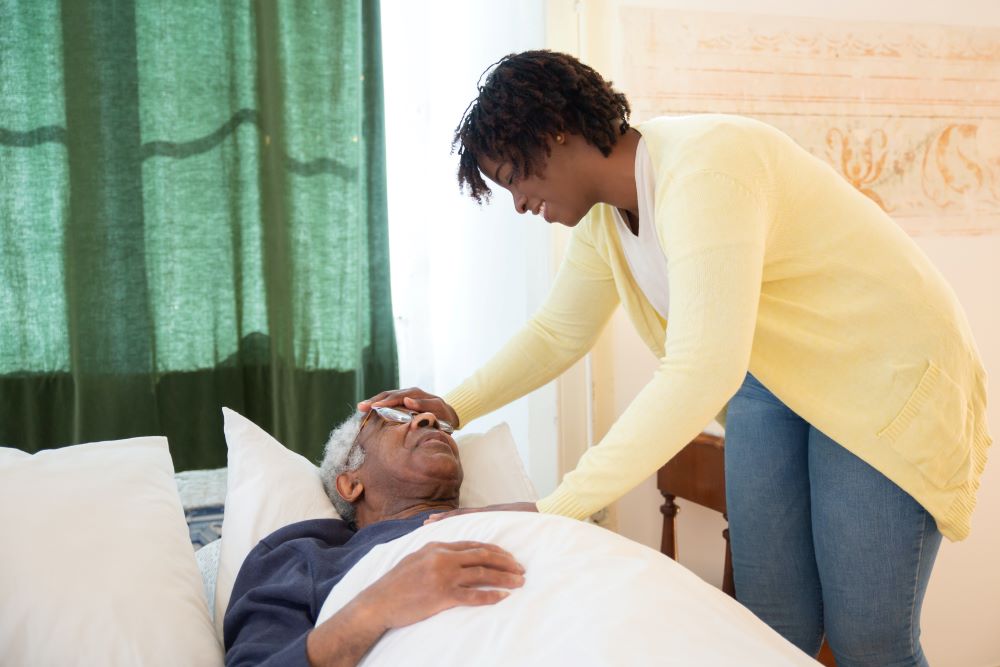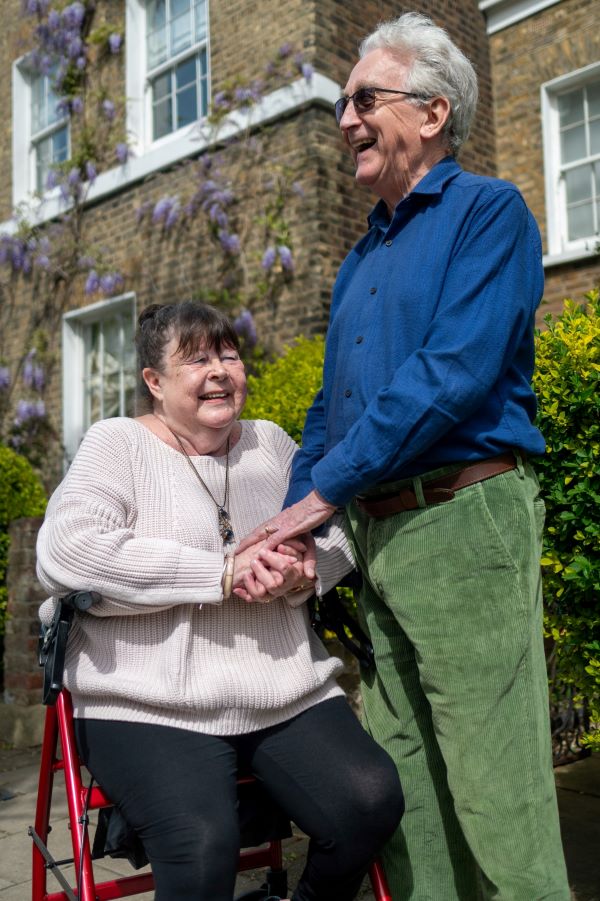Find out about The Open University's Health and Wellbeing courses.
The long-term shift towards an ageing population, lower use of institutional care, improved longevity of those with lifelong disabilities and reduced expenditure on public services means the number of family carers is rising and predicted to continue to rise. As a result, caring will touch most of our lives; more than three in five of us will be a carer at some point. In addition, increasing numbers of people are likely to care more than once and care for two people at the same time. This all means that currently 20% (one in five) of the UK population are carers (Carers UK, 2022).
Despite the fact that many carers want to care and find the role rewarding, caring can be all-consuming and demanding. The following quote from a carer in a recent research study illustrates what it can be like to be a carer:
‘You know, it’s just that constant sort of presence that I have to be. A lot of encouraging her to eat, encouraging her to wash and do self-care, all round that kind of thing’. Kubiak et al, 2021This carer’s account describes how caring can be difficult to plan around and disruptive of everyday life (Larkin et al., 2019). Unsurprisingly, caring can take a toll on carers’ health, finances, relationships and social life. For example, 71% of carers have poor physical or mental health, 22% live in poverty and 80% are lonely or socially isolated (Carers UK, 2021).
 Caring
also impacts on education and employment; those who have been young adult
carers have lower GCSE attainment, are twice as likely as their peers to be
NEET (not in employment, education, or training) for six months or more and are
four times as likely to drop out of college/university than other students (Powell et al., 2020). In
terms of employment, having a caring role leads to around 2.6 million people per annum in the
UK giving up work ‘in order to care’ and many report being unable to progress
their careers and undertake further study (Petrie
& Kirkup, 2018; Department for Work and Pensions, 2020).
Caring
also impacts on education and employment; those who have been young adult
carers have lower GCSE attainment, are twice as likely as their peers to be
NEET (not in employment, education, or training) for six months or more and are
four times as likely to drop out of college/university than other students (Powell et al., 2020). In
terms of employment, having a caring role leads to around 2.6 million people per annum in the
UK giving up work ‘in order to care’ and many report being unable to progress
their careers and undertake further study (Petrie
& Kirkup, 2018; Department for Work and Pensions, 2020).
Therefore, carers often suffer for what they contribute and probably will suffer more in the future because of the demands placed on them by ongoing budget cuts to health and social care services and the need for more and more care to be provided by family and friends in the home.
The Open University (OU) is the leading distance learning higher education provider globally. Our mission is to make education open to all. Flexible and open access educational provision removes the barriers associated with location, life circumstances and the need for prior educational attainment. Ever since the OU was launched more than 50 years ago, we have refined the art of building successful distance learning journeys and changing lives by making it possible for anyone to learn, anytime, anywhere, whatever their circumstances. As a registered charity, the OU also spearheads initiatives targeted at providing access to education for some of the most disadvantaged individuals in society. With almost 31,000 disabled students annually, the same size as an average university’s entire student population, is testament to our commitment to our mission.
 In
relation to carers, our open access entry policy means their prior educational
attainment is not a barrier to study. The design of our online learning resources and courses
offers the most flexible way for carers to study around their caring commitments. We also have a
strong and ongoing commitment – underpinned by a robust research programme – to meeting carers’ needs and continually develop our evidence-based systems to ensure we are ideally placed to help carers access
and succeed in
education. For example, we have a carer identification system; a Student Carer
Policy, which sets out the support arrangements in place specifically for
carers; a frontline team of staff trained in carer support; a dedicated ‘Support
for carers’ Help Centre page that outlines all the support available to OU
students to help them balance caring and studying; carer bursaries of £250 to
help with study-related costs; and bespoke carer
employability support. The OU Students Association also facilitates a support
network for carers through its Carers Forum and Facebook group. Our pioneering
approach to social justice for unpaid carers through education is epitomised by the launching
of the OU’s Carers Scholarship Fund (CSF). This is the very first of its kind in the UK and provides up to 50 carers each year
with funding for a full OU qualification.
In
relation to carers, our open access entry policy means their prior educational
attainment is not a barrier to study. The design of our online learning resources and courses
offers the most flexible way for carers to study around their caring commitments. We also have a
strong and ongoing commitment – underpinned by a robust research programme – to meeting carers’ needs and continually develop our evidence-based systems to ensure we are ideally placed to help carers access
and succeed in
education. For example, we have a carer identification system; a Student Carer
Policy, which sets out the support arrangements in place specifically for
carers; a frontline team of staff trained in carer support; a dedicated ‘Support
for carers’ Help Centre page that outlines all the support available to OU
students to help them balance caring and studying; carer bursaries of £250 to
help with study-related costs; and bespoke carer
employability support. The OU Students Association also facilitates a support
network for carers through its Carers Forum and Facebook group. Our pioneering
approach to social justice for unpaid carers through education is epitomised by the launching
of the OU’s Carers Scholarship Fund (CSF). This is the very first of its kind in the UK and provides up to 50 carers each year
with funding for a full OU qualification.
The OU’s model of quality, flexible, distance learning higher education and bespoke carer support addresses many of the issues that prevent carers from accessing and remaining engaged with higher education. Crucially, the OU offers structured routes into degree level study, starting at the lowest levels, providing achievable access to learning for all carers and opportunities for carers to continue their lifelong learning journey. The resulting benefits of an OU education to students are greater than the certificate they receive; they gain confidence, self-motivation and other skills which are invaluable in work and in life, improving their health and wellbeing and their employment prospects.




Rate and Review
Rate this article
Review this article
Log into OpenLearn to leave reviews and join in the conversation.
Article reviews